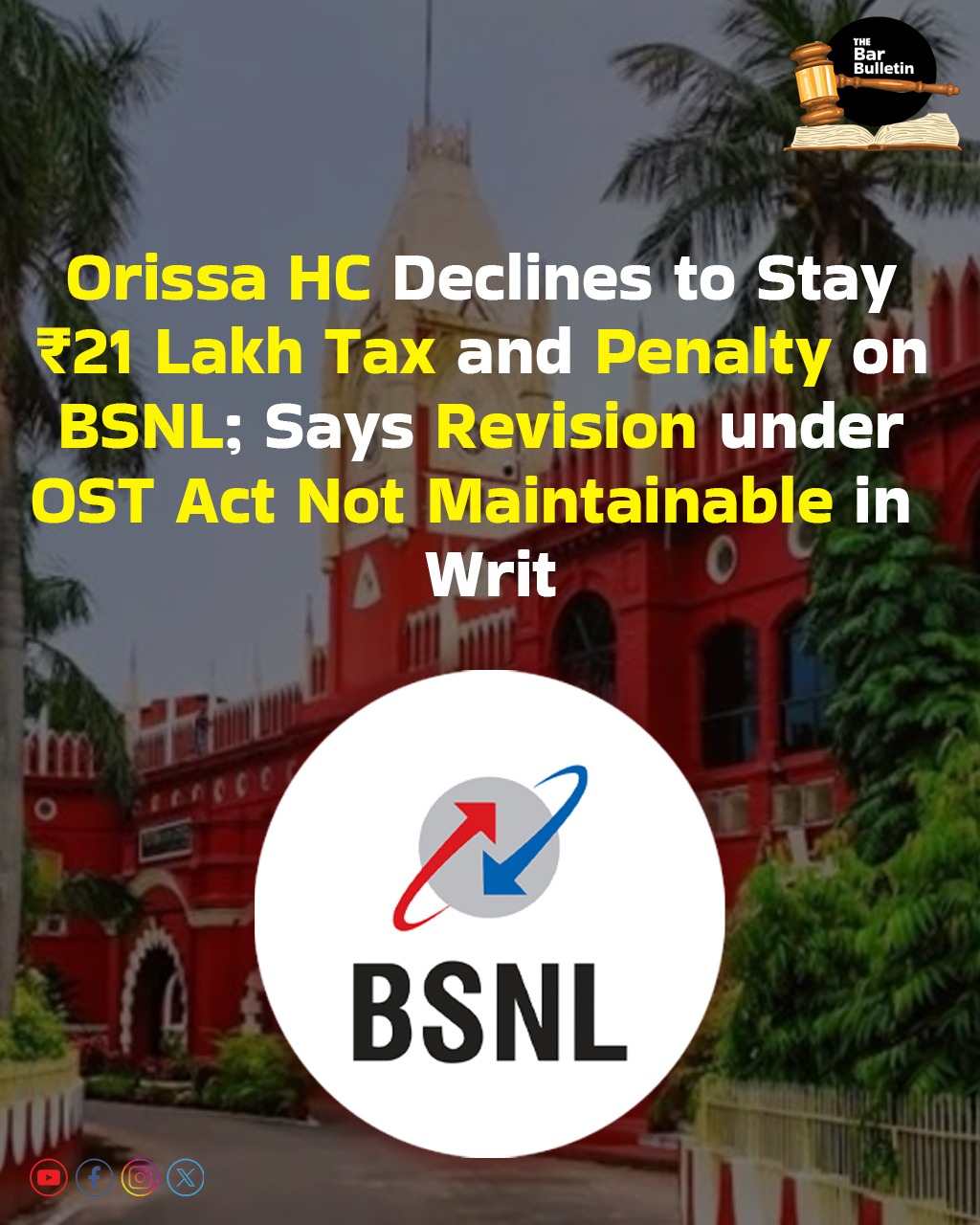Finding that the petitioner, though being aware of the legal position regarding the alternative remedy available under the Orrisa Sales Tax (OST) Act, has filed the writ with a view to dragging the proceedings and essentially postponing the payment of tax for a considerable period, the Orissa High Court has held that existence of jurisdictional fact is sine qua non or condition precedent for the exercise of power by a Court of limited jurisdiction.
The Court also clarified that where an adjudicatory process is involved on merits, then the only remedy open to an aggrieved is to go through the procedure provided under the enactment. Nonetheless, where a jurisdictional fact is absent, the Authority cannot wrongly assume the existence of a jurisdictional fact and proceed to decide a matter, and in such an eventuality, the order can be questioned by a writ of certiorari.
Since the Commissioner has delegated the power of revision under Section 23(4)(a) of the OST Act, whether the Additional Commissioner has seemly exercised his power of revision as delegated coupled with the question whether twin conditions as envisaged under Rule 80 of the OST Rules are satisfied, are the domain of the appellate authority vested with power under Section 23(4)(c) of the OST Act, added the Court.
The Division Bench comprising the Chief Justice Harish Tandon and Justice Murahari Sri Raman observed that once the power of revision available to the Commissioner under Section 23(4)(a) read with Rule 79 has been delegated, and the Additional Commissioner has passed an order in suo motu revision under Section 23(4)(a) read with Rule 80, then the Commissioner cannot re-initiate the proceeding invoking said provision.
The Bench pointed out that once the Additional Commissioner has passed the order in the capacity of delegated authority to invoke the power of revision, then the Commissioner cannot invoke the same power again. Hence, an appeal against the order passed in revision by the Additional Commissioner would lie before the Commissioner under Section 23(4)(c)(ii) of the OST Act.
Briefly, in this case, the Petitioner, a Government of India Undertaking, was subjected to assessment under Section 12(5) of the OST Act by the Sales Tax Officer, which culminated in confirmation by the Odisha Sales Tax Tribunal. In further proceedings thereafter under Section 24 of the OST Act, the matter was remanded for fresh assessment. Consequently, the Sales Tax Officer passed a fresh assessment reducing the demand to ‘Nil’, which led to the claim of refund of Rs. 20 lacs. In the meantime, the Additional Commissioner initiated a revision proceeding under Section 23(4)(a) of the OST Act, contemplating to revise such assessment order leading to the claim for refund of tax paid. Accordingly, the assessment was revised and the Sales Tax Officer raised a demand comprising tax and surcharge, besides penalty to the tune of Rs. 20.80 lacs, asking the petitioner to deposit the same.
Appearances:
Advocates Pranaya Kishore Harichandan and Pragyant Harichandan, for the Petitioner/ Taxpayer
Advocate Sunil Mishra, for the Respondent/ Revenue

